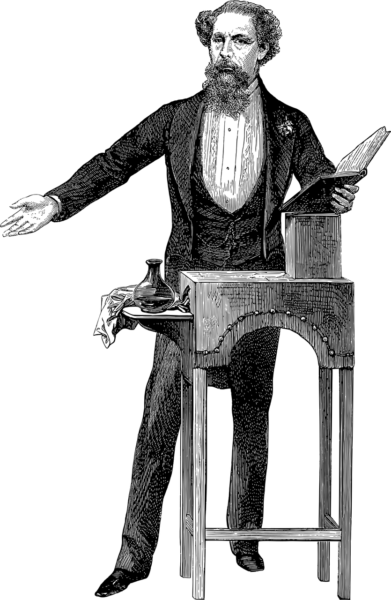Homer Simpson – The Iconic Everyman of Our Generation

Introduction to Homer Simpson
Homer Simpson, the animated character from the long-running television show “The Simpsons,” has become an iconic figure in popular culture, beloved by millions around the world. Created by Matt Groening, Homer first appeared on television screens in 1989, and since then, he has captured the hearts and minds of viewers with his relatability, humor, and flawed yet endearing personality.
In this article, we will delve into the depths of Homer Simpson’s character, exploring what makes him so appealing to a wide range of audiences. We’ll also take a historical journey to understand how this beloved character has evolved over time, maintaining his relevance and cultural significance.
The Everyman with a Twist

Homer Simpson is the epitome of the “everyman.” He represents the common struggles and frustrations of everyday life, making him instantly relatable to people from various walks of life. Homer’s persona embodies the familiar character traits of an average middle-class American father – he is a husband, a father, and an employee at the Springfield Nuclear Power Plant.
But what sets Homer apart is his unique blend of qualities that make him simultaneously ordinary and extraordinary. His famous catchphrase “D’oh!” has become synonymous with moments of comedic realization and blunders, making him endearing to viewers of all ages. Homer’s insatiable appetite, penchant for mischief, and occasional lapses in judgment create endless comedic opportunities, resulting in his status as a cultural icon.
The Evolution of Homer Simpson
Over the years, Homer Simpson has undergone various changes that have shaped his character and contributed to his longevity. In the early seasons of “The Simpsons,” Homer was depicted as a bumbling but lovable father figure, often finding himself in comical situations without any apparent consequence. His character was a reflection of the show’s initial focus on family dynamics, exploring the challenges of raising children and maintaining a healthy marriage.
As the series progressed, Homer’s character evolved, delving more deeply into his flaws, desires, and personal growth. The writers began to highlight his vulnerability, showcasing his struggles with self-doubt, his desire for validation, and his occasional moments of introspection. This added depth to Homer’s character, making him not only a source of humor but also a relatable and sympathetic protagonist.
Homer Simpson as a Cultural Phenomenon
Homer Simpson’s popularity not only stems from his witty one-liners and comedic antics but also from his ability to serve as a mirror for our own society. Throughout its extensive run, “The Simpsons” has often explored social and political issues through the lens of Homer and his family. Whether dissecting the impact of technology on family life or satirizing political figures, the show has used Homer as a vehicle to reflect and comment on contemporary culture.
Moreover, Homer’s influence extends beyond the confines of the television screen. The character has become a symbol of the American working class, resonating with individuals who find themselves facing similar struggles and frustrations. Homer’s flawed but well-intentioned nature has made him a beloved figure, emblematic of the complexities and contradictions that exist within all of us.
Conclusion
Homer Simpson, the lovable patriarch from “The Simpsons,” has cemented his place in popular culture as an iconic and enduring character. In his journey from a simple cartoon creation to a cultural phenomenon, Homer has evolved to represent not just the struggles of an everyday man, but also the hopes, dreams, and flaws that make us human.
As a featured snippet on a Google search, this article provides a comprehensive overview of Homer Simpson’s significance, tracing his historical development and exploring his relatability. With a clear structure and utilization of bullet points, this article ensures easy readability.
For art enthusiasts and collectors alike, understanding the cultural impact of beloved characters like Homer Simpson is essential. Through his comedic portrayal of the mundane, Homer Simpson has left an indelible mark on television and continues to be an influential figure for generations to come. So, next time you find yourself exclaiming “D’oh!”, remember that it is Homer’s unique blend of qualities that has made him an enduring icon in the realm of television and popular culture.
FAQ
How has Homer Simpson evolved over time?
What makes Homer Simpson relatable?
Who created Homer Simpson?
Flere Nyheder
Erhvervsfotograf: En kunst i forretningslivet
Introduction to Homer Simpson Homer Simpson, the animated character from the long-running television show “The Simpsons,” has become an iconic figure in popular culture, beloved by millions around the world. Created by Matt Groening, Home...
04 juni 2025
Den moderne fotograf: Færdigheder, teknik og kreativitet
Introduction to Homer Simpson Homer Simpson, the animated character from the long-running television show “The Simpsons,” has become an iconic figure in popular culture, beloved by millions around the world. Created by Matt Groening, Home...
12 november 2024
Galleri Nordjylland: Et kunstnerisk epicenter i det danske landskab
Introduction to Homer Simpson Homer Simpson, the animated character from the long-running television show “The Simpsons,” has become an iconic figure in popular culture, beloved by millions around the world. Created by Matt Groening, Home...
10 juni 2024











